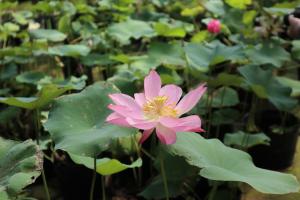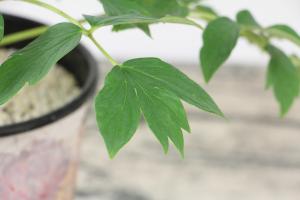Introduction
Banana is one of the oldest cultivated crops in the world, with its origin in Southeast Asia. It is an essential crop because it provides a significant source of food for millions of people worldwide. Banana tree plant is the plant that produces bananas. In this article, we will discuss what a banana tree plant is, its growing process, and its nutritional benefits.
What is a banana tree plant?
The banana tree plant is a tropical plant that grows in warm climates. It is a fast-growing, broad-leaved plant that can grow up to 30 feet in height. It has a thick, fibrous trunk with large leaves clustered at the plant’s top. The banana tree plant produces fruits in clusters, which are referred to as banana bunches.
The banana plant’s growth is divided into cycles, and each cycle produces a single bunch of bananas. Once the fruit is harvested, the banana tree will die back; however, it will grow offshoots, which will replace the original plant.
How is a banana tree plant grown?
Banana trees grow best in tropical and subtropical climates. The plant requires a lot of water, so it is usually grown near rivers, lakes, and other water sources. The soil should have good drainage and be rich in organic matter.
The growing process of a banana tree plant starts with planting a banana sucker or a tissue culture plant. The sucker is a young offshoot from an adult banana plant, while a tissue culture plant is a seedling grown in a laboratory. After planting, the banana tree starts to grow, and it takes about nine months to produce fruit.
The plant requires a lot of care during the growing process. It needs routine pruning to remove old or damaged leaves and to prevent the plant from toppling over under the weight of the fruit. Additionally, the plant needs regular fertilization to ensure proper growth.
What are the nutritional benefits of a banana?
Bananas are a nutrient-dense food that provides many health benefits. One medium-sized banana contains about 110 calories, 30 grams of carbohydrates, and 1 gram of protein. Bananas are also an excellent source of fiber, vitamin C, vitamin B6, and potassium. The fiber in bananas helps with digestion, while vitamin C and B6 help boost the immune system.
Potassium is one of the most significant nutritional benefits of bananas. Potassium is an essential mineral that helps regulate fluid balance, muscle function, and nerve function. Bananas are one of the best dietary sources of potassium, with one medium-sized banana containing about 400-500mg.
Conclusion
Banana tree plant is a tropical plant that produces bananas, one of the most important food crops globally. The growing process requires a lot of care, and the plant needs plenty of water and regular pruning and fertilization. Bananas are a nutrient-dense food that provides many health benefits, including fiber, vitamins, and potassium.

 how many times do yo...
how many times do yo... how many planted tre...
how many planted tre... how many pine trees ...
how many pine trees ... how many pecan trees...
how many pecan trees... how many plants comp...
how many plants comp... how many plants can ...
how many plants can ... how many plants and ...
how many plants and ... how many pepper plan...
how many pepper plan...






























